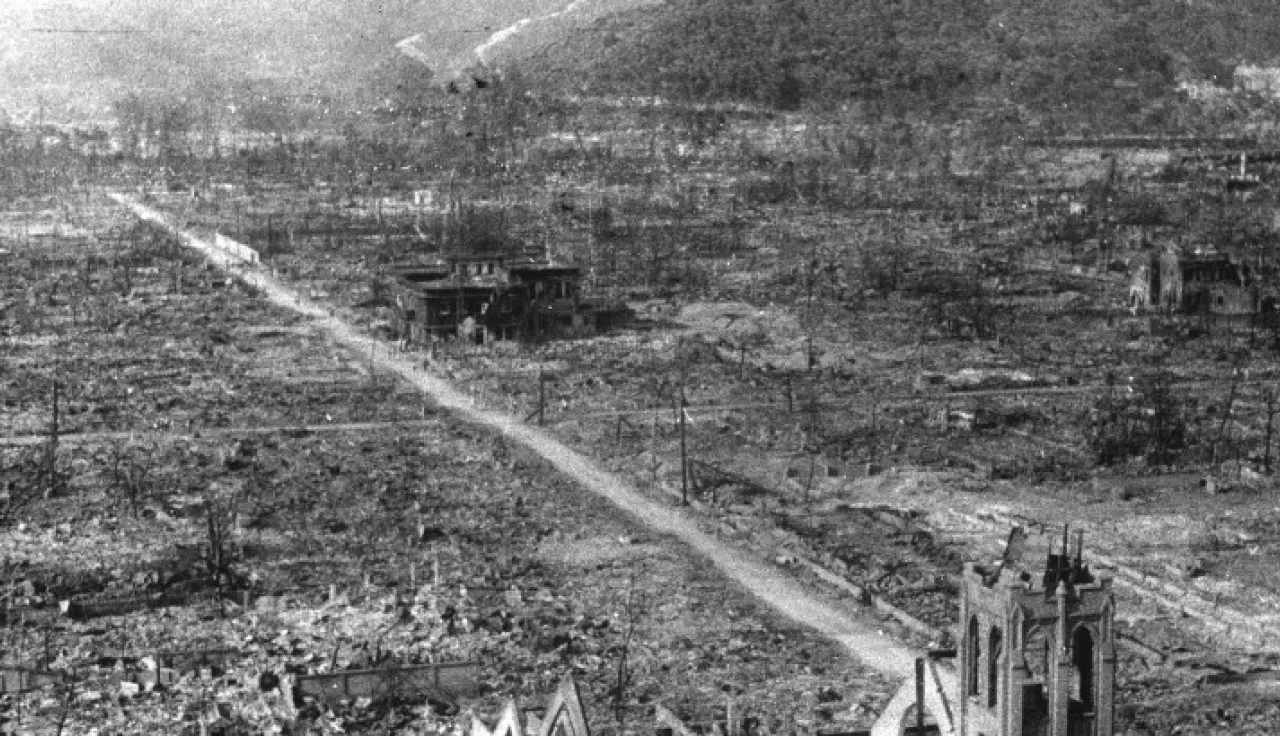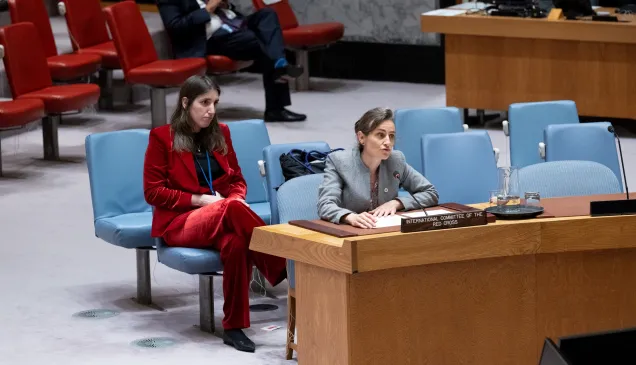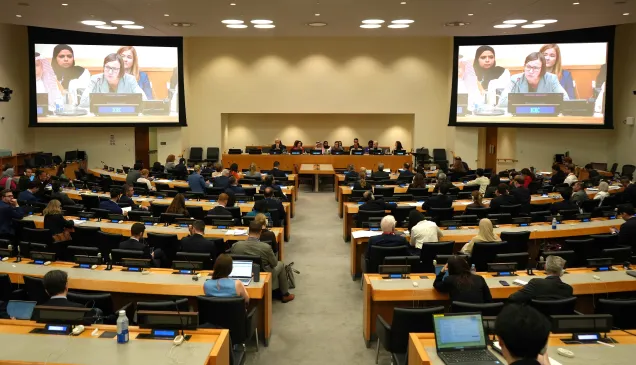Excellencies,
Ladies and gentlemen,
I am pleased to join you today to mark the International Day for the Total Elimination of Nuclear Weapons – an important day for reflection but also for decision-making.
The continued existence of nuclear weapons is one of the biggest threats to humanity.
Such weapons leave horrific, long-term, and often irreversible effects on health, the environment, the climate, and food security, undermining our very survival. No State or international organization today is able to adequately respond to the massive humanitarian needs a nuclear catastrophe would generate.
The ICRC and the Japanese Red Cross Society witnessed first-hand the horror and suffering brought upon Hiroshima and Nagasaki when the atomic bombs were unleashed in 1945, as they tried, in near-impossible conditions, to assist the dying and injured. The International Movement of the Red Cross and Red Crescent has since then been calling incessantly for the prohibition and elimination of nuclear weapons.
In the ICRC's view, it is extremely doubtful that nuclear weapons could ever be used in accordance with the rules and principles of International Humanitarian Law.
Moreover, any use of nuclear weapons would be abhorrent to the principles of humanity and the dictates of public conscience. Any threat to use nuclear weapons is in the ICRC's view equally abhorrent because it implies their actual use.
The risk of nuclear weapons being used is growing, and it is a risk we cannot afford to accept. Over the past year and a half, there has been an alarming increase in nuclear rhetoric, coupled with a concerning trend of modernization of nuclear arsenals.
Against this bleak international environment, the Treaty on the Prohibition of Nuclear Weapons (TPNW) is a beacon of hope and a historic milestone in the pursuit of international peace and security.
In a ground-breaking moment, a true victory of humanity and multilateralism, the TPNW made the prohibition of nuclear weapons a reality, but the road ahead is still long. There are currently more than 13,000 nuclear weapons in the world, a number which, according to recent studies, is expected to increase. Despite commitments to the contrary, nuclear weapons continue to feature prominently in military doctrines and security policies.
In an era marked by heightened global geopolitical tensions, where nuclear deterrence theories are regaining vigour, the significance of multilateral collaboration has never been greater. Against the spectre of nuclear war, the TPNW remains today the most compelling alternative to nuclear deterrence.
The TPNW complements the existing nuclear disarmament architecture by reinforcing the moral, ethical, and legal imperatives of disarmament, not least as enshrined in Article VI of the Non-Proliferation Treaty (NPT). The latter remains a cornerstone of the global nuclear disarmament and non-proliferation architecture, but it needs to achieve urgent progress towards the elimination of nuclear weapons if it is to maintain its credibility.
Through the TPNW, today, half of the world's States are saying "never" to nuclear weapons. We call on all States that have not yet done so to join the Treaty, and on State signatories to ratify it without dely.
We congratulate the Bahamas for their signature and Sri Lanka for their accession to the TPNW last week.
The ICRC, along with the rest of the Red Cross and Red Crescent Movement, will continue to work tirelessly to strengthen the membership of the TPNW and its implementation, until our shared goal of a nuclear-weapon-free world becomes reality.
Thank you.




